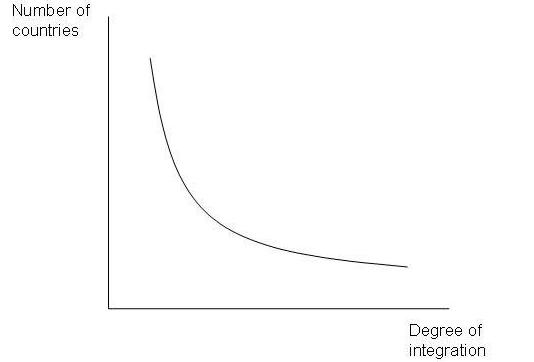Nejnovější
- Budoucnost Evropy v éře dnes probíhajících geopolitických posunů
- Václav Klaus in Vienna: Europe’s Future in Times of Geopolitical Shifts
- Ivo Strejček: Kvadratura grónského kruhu a český zájem
- Notes for Zürich: Davos, Global Warming and Communism Are Close Relatives
- Jiří Weigl: Německé výročí v závoji nejistot
Nejčtenější
- Václav Klaus pro XTV: „Evropské elity zbortily Trumpův mírový plán, totálně podléhají Zelenskému"
- Ivo Strejček: Domýšlí Petr Pithart svá slova?
- Ivo Strejček: Kvadratura grónského kruhu a český zájem
- Jiří Weigl: Německé výročí v závoji nejistot
- Notes for Zürich: Davos, Global Warming and Communism Are Close Relatives
Hlavní strana » English Pages » Enlargement of the EU: What…
Enlargement of the EU: What to Say in Turkey?
English Pages, 18. 4. 2006
1. Many thanks for inviting me to say a few words here. There are many topics to talk about but it seems to me that here, in Turkey, the most appropriate topic is the European Union, and especially its potential future enlargement.
We are at a University and I do not plan to make political statements here. Let me – on the contrary – put the whole problem in a broader perspective. In order to do that we have to return to the beginning.
2. Institutionalization of the centuries lasting process of European integration, which originated in Rome in 1957 in the form of the European Economic Community (EEC), was more or less the economic inevitability (after the Great Depression and the Second World War, which brought into Europe economic nationalism, protectionism, autarky, competitive devaluations, economic planning and a wide-ranging government interventionism) and a result of political ambitions of a group of European politicians who were influenced by the Second World War and who interpreted the war – wrongly – as a consequence of the existence of nation states.
3. At that time, it was important to institutionally support the much needed liberalization, the opening-up of European countries, the removal of barriers to the movement of goods and services, of people and ideas all over Europe. That was the positive rationale behind the formation of the EEC, even though it was quite clear that some of the European integration gurus (Monnet, Schuman) wanted much more than the minimalist version of economic integration based on strict intergovernmentalism. They wanted political unification and considered the economic integration only as an intermediate target only and as a vehicle for achieving much more. I myself – 40 years ago, as an economic researcher in the Czechoslovak Academy of Sciences, and now as President of the Czech Republic – considered and consider the economic integration as an inevitable and beneficiary process, whereas the political integration as a non-necessary, visibly over-ambitious and in principle dubious project which will – I suppose – bring about more costs (not in narrow financial terms) than benefits.
4. The European Union, as we know it today, is much more than an economic integration and much more than an intergovernmental cooperation of sovereign countries. Whether this is what the citizens of the EU member states wanted and expected has been the subject of many discussions and, recently, even the topic of referendums in some countries concerning the European Constitution which was nothing else than an attempt to jump forward towards “ever-closer Europe”. This issue is of utmost importance and the people have to have a chance to decide. I see many problems in moving towards political union, towards majority voting and towards supranationalism. That is why I am against it.
5. The EU enlargement is a quite different problem is. I would like to start with saying that I am convinced that no one has the key to the doors of the EU, not to speak about the doors of Europe. This difference – between Europe and the EU – is absolutely crucial but often not understood or deliberately ignored. The doors of Europe do not exist. No one country enters Europe. A country can eventually enter the European Union. My point is that any country, willing to participate in the European integration process, should have a chance to do it, on the condition of fulfilling the agreed-upon political, economic and social criteria.
The membership in the EU has no connection (and should not have any connection) with culture, religion, history, GDP per capita level, etc. With this in mind, it should not be surprising that I am in favour of the membership of Turkey in the EU. To be frank, however, I must add that I am in favour of the membership of all other countries which want to enter the EU.
6. There is, however, an important, and for some people unpleasant, trade-off. We cannot have in the EU both – more and more member countries and deeper and deeper integration. This is either – or. There has never been in human life and human society “something for nothing”. We should – humbly – accept it.
It is quite obvious that we can either have more member countries with lower degree of integration or less countries with higher degree of integration. It can be demonstrated by a simple graph.

To understand the meaning of this curve is important for all of us, especially for the EU politicians, for those who have a decision-making power. I hope the Turks do understand this.
Václav Klaus, Middle East Technical University, Ankara, Turkey, April 18, 2006
- hlavní stránka
- životopis
- tisková sdělení
- fotogalerie
- Články a eseje
- Ekonomické texty
- Projevy a vystoupení
- Rozhovory
- Dokumenty
- Co Klaus neřekl
- Excerpta z četby
- Jinýma očima
- Komentáře IVK
- zajímavé odkazy
- English Pages
- Deutsche Seiten
- Pagine Italiane
- Pages Françaises
- Русский Сайт
- Polskie Strony
- kalendář
- knihy
- RSS
Copyright © 2010, Václav Klaus. Všechna práva vyhrazena. Bez předchozího písemného souhlasu není dovoleno další publikování, distribuce nebo tisk materiálů zveřejněných na tomto serveru.
















